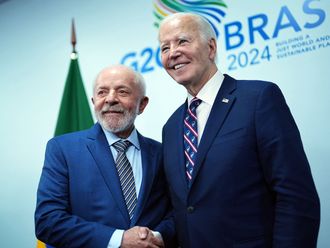Manama: A prominent rights campaigner has accused the West of fuelling sectarianism in Bahrain by being openly receptive to rhetoric that has precipitated incidents of violence and confrontation.
"Unfortunately, the West is taking in all the statements issued by some activists in Bahrain, even when they are, in fact, worsening the maelstrom of sectarianism and driving a wedge within society," former exile and current Bahrain Human Rights Society (BHRS) training and awareness chairman Abdul Nabi Al Ekri told Gulf News yesterday.
"To the West, we do not exist as Bahrainis, but rather as Sunnis, Shiites, Christians and Persians. They are not willing to listen to us when we talk about the Bahraini people and the building process as a nation. They would rather deal with us as separate components. Some activists know this and exploit it very well by presenting themselves as Shiites in dire need of help," said Al Ekri, himself a Shiite, who was for 30 years an exile in the West. Bahrain has recently witnessed a wave of clashes between the police and rioters who said that confronting the authorities "is the only way to make our voices heard."
Activists, meanwhile, said the United Nations and Western countries should be involved in Bahrain's domestic affairs.
But Al Ekri, who contributed to the 1996 European Parliament and UN Commission for Human Rights resolutions calling on the Bahrain government to restore parliament, allow exiles back and hold elections, said activism should be geared towards helping needy people.
"Activists like Nabeel Rajab and Abdul Jalil Singace have made us lose our focus and many important national issues have been stalled because of their own agendas. We really need to work together as a nation for common benefit, and not against one another for personal gains," said Al Ekri, who chairs the Committee of the Former Exiles, a loose organisation tasked with helping 350 families of former exiles resettle in Bahrain. He said he would resign from his post by the end of this month because he has been accused by some members of not being confrontational enough.
"Unfortunately, some activists believe they can take on the state and engage, through proxies, in confrontations with the authorities. The government can cut them off by proving its sincerity in the quest for solutions while the West should not give activists who have a confrontational agenda the sentiment that they are invincible or that they have full support," he said.












